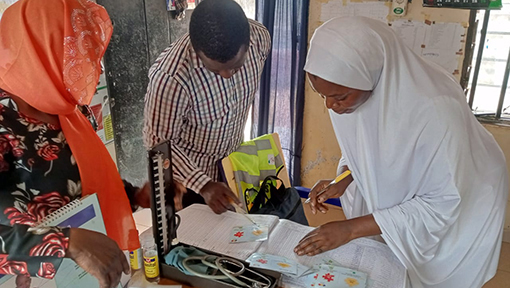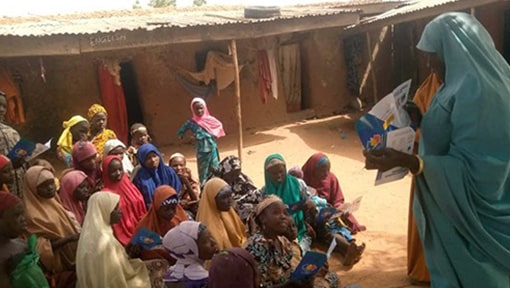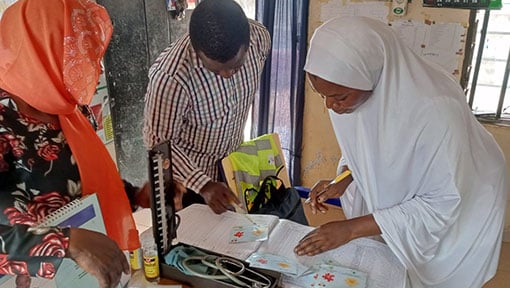TCI Helps Transfer Family Planning Capacity to Abidjan’s District Health Teams and City Officials

Participants of the National Quantification Workshop that TCI Francophone West Africa helped support.
Abidjan’s Directorate for the Coordination of the National Maternal and Child Health Program, the Ministry of Health and Public Hygiene, and Côte d’Ivoire’s union of elected officials (UVICOCI) are now working together to provide technical support on high-impact family planning approaches.

First free endowment of contraceptive supplies from the Cote d’Ivoire National Reproductive Health Program.
The Challenge Initiative’s implementing partner in Francophone West Africa – IntraHealth International – helped bring them all together with the aim of delivering proven, high-impact family planning approaches for Abidjan’s poor urban women. These approaches include special “Family Planning Days,” where women can access the full spectrum of methods free of charge on designated days, and “Mobile Family Planning Days,” which bring family planning services to underserved populations.
Intrahealth also helped organize a workshop to strengthen capacity to estimate contraceptive needs, allocate the appropriate commodity quantities and prepare a final budget for service delivery. During this highly participatory workshop, participants from the district health teams and UVICOCI worked together to determine the:
- Number of Family Planning Days and mobile outreaches needed throughout the year
- Number of clients to target during each Family Planning Day
- Quantity of contraceptive supplies needed and system for managing the supply of products
- Equipment and supplies required for Family Planning Days and Mobile Family Planning Days
- Necessary logistics, including human resources, means of transport, storage, return management and activity management tools, etc.
Historically, implementing partners such as IntraHealth – not district health teams – prepared for Family Planning Days and ordered contraceptive supplies. Before this workshop, neither city officials nor the district health staff had any experience allocating or purchasing family planning commodities. This meant that districts had to wait to receive family planning supplies until after routine consultations and then make special requests for additional supplies during Family Planning Days, mobile outreaches or other free family planning offerings.

Van delivering contraceptive commodities made available by the Mayor of Yopougon District.
Now, district health teams are responsible for data projections and estimating needs for the family planning days. This not only ensures adequate contraceptive commodities for women, men and couples in Abidjan, but also guarantees the long-term sustainability and availability of contraceptive commodities by making sure that town hall officials have the skills to allocate the appropriate budget and ensure the availability of family planning supplies.
And city officials now understand the role they have to play and are empowered to provide support to health districts. They have also become more involved in planning activities, such as identifying sites, mobilizing communities and supervising the community Family Planning Days, strengthening Abidjan’s long-term capacity to ensure contraceptive access.






